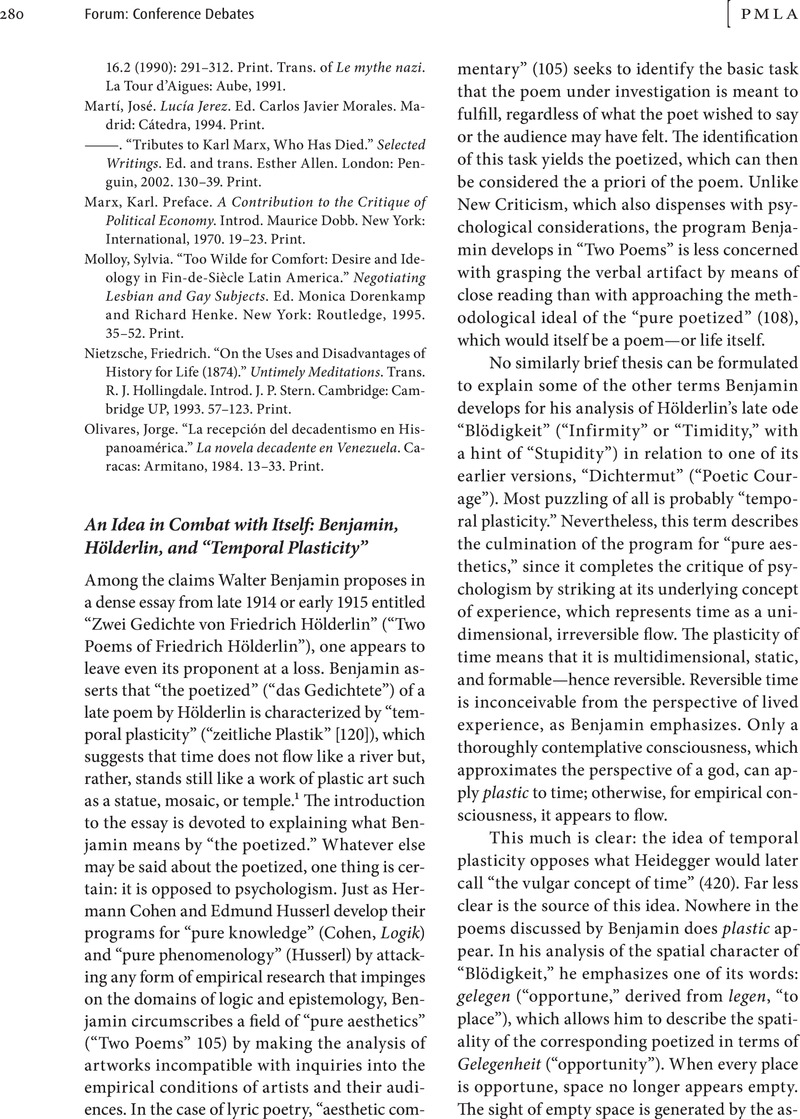No CrossRef data available.
Article contents
An Idea in Combat with Itself: Benjamin, Hölderlin, and “Temporal Plasticity”
Published online by Cambridge University Press: 23 October 2020
Abstract
An abstract is not available for this content so a preview has been provided. Please use the Get access link above for information on how to access this content.

- Type
- Forum: Conference Debates
- Information
- Copyright
- Copyright © 2009 by The Modern Language Association of America
References
Works Cited
Benjamin, Walter. “Zwei Gedichte von Friedrich Hölderlin.” Gesammelte Schriften. Ed. Tiedemann, Rolf and Schweppenhäuser, Hermann. Vol. 2. Frankfurt am Main: Suhrkamp, 1977. 105–26. Print. 7 vols. 1972–91.Google Scholar
Bergson, Henri. Essai sur les données immédiates de la conscience. Paris: Alcan, 1889. Print.Google Scholar
Bergson, Henri. Matière et mémoire: Essai sur la relation du corps a l'ésprit. Paris: Alcan, 1896. Print.Google Scholar
Cassirer, Ernst. Substanzbegriff und Funktionsbegriff: Untersuchungen über die Grundfragen der Erkenntniskritik. Berlin: Cassirer, 1910. Print.Google Scholar
Husserl, Edmund. Ideen zu einer reinen Phänomenologie und phänomenologischen Philosophie. Halle: Niemeyer, 1913. Print.Google Scholar




